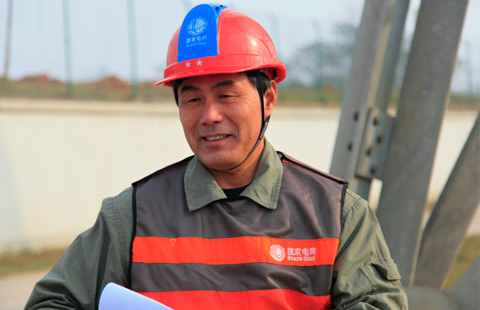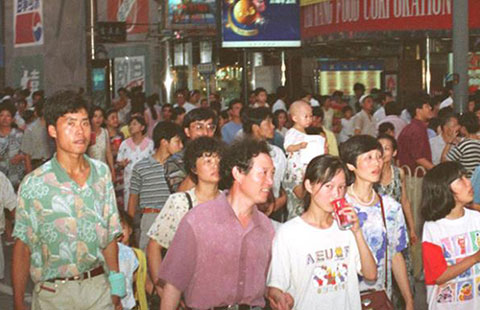House price rises accelerate in Chinese cities
BEIJING -- Home prices kept rising at a quicker pace in major Chinese cities last month, underscoring the necessity of government measures to cool the property market, data showed on Friday.
Of a statistical pool of 70 major Chinese cities monitored by the National Bureau of Statistics, 53 cities saw home prices increase within 2.2 percent in January from a month earlier. In December, 54 cities recorded increases with a growth margin of no more than 1.2 percent.
New home prices in first-tier cities including Beijing, Shanghai, Guangzhou and Shenzhen respectively rose 2.1 percent, 1.3 percent, 2.0 percent and 2.2 percent on a month-on-month basis, marking a quicker pace of growth than in December.
On a year-on-year basis, 53 cities registered rising prices with the growth rate drastically up to 4.7 percent, compared with the 2.4 percent rise recorded in December, the NBS said in a statement on its website.
New home price in Guangzhou recorded the largest year-on-year growth of 4.7 percent, followed by Urumqi and Beijing. The eastern city of Wenzhou saw its housing price plunge 10.1 percent from a year ago, according to the NBS.
Compared with a month ago, only 10 cities saw prices fall and seven saw prices stay unchanged.
Compared with a year ago, 16 cities saw prices decline and and one kept the same.
Since 2010, the Chinese government has adopted measures including restricting third-home purchases and introducing property tax trials to cool the runaway real estate market, which has been the key economic driver for the country in recent years.
However, home prices started to rebound unexpectedly in the second half of 2012, shored up by the country's pro-growth policies, including two consecutive interest rate cuts and the lowering of banks' reserve requirement ratio.
Amid the increasingly warming property market, the State Council, China's cabinet, reaffirmed its stance on Wednesday, saying it will strictly implement and improve measures to tighten the housing market and ensure that the policies remain steady.
The cabinet asked cities that have imposed restrictions on the housing market to maintain their grip, while other cities in which home prices have soared will be asked by provincial governments to introduce timely curbing measures, according to a statement released after the cabinet meeting held Wednesday.
It also said China must continue to curb speculation in the housing market and expand experimental property tax reforms in Shanghai and Chongqing to more regions.
Liu Jianwei, the statistician with the NBS, forecast that prices will not rebound dramatically if these measures are strictly implemented, especially in light of the completion of more affordable housing units this year.
China will finish construction on 4.7 million affordable housing units and start construction on another 6.3 million units in 2013, the State Council also said Wednesday.
The affordable housing program, first approved in 1999, has enabled low-income families to own homes despite the overheated real estate sector in recent years.
The government allocated 233.26 billion yuan ($37.1 billion) for subsidized housing projects in 2012, up 36.2 percent year-on-year, according to the Ministry of Finance.
Meanwhile, the government is planning the construction of 36 million affordable housing units during the 2011-2015 period.
Liu also said that based on last year's rate of sale, the 236 million square meters of housing pending sale in December should be sold by March.
That means the housing market faces a generally balanced situation in supply and demand, providing a foundation for forecasting stabilizing housing prices, said the statistician.
China's economy is also showing signs of stabilization, as GDP growth quickened to 7.9 percent in the fourth quarter of 2012 after hitting an almost three-year low in the third, according to NBS data.
The NBS said the country's consumer price index, a major gauge of inflation, eased to 2 percent year-on-year in January from a seven-month high in December despite rising food prices.
In the pursuit of high-quality and efficient growth, the central government vowed to maintain a proactive fiscal policy and prudent monetary policy in 2013 during a key economic work conference in December.























